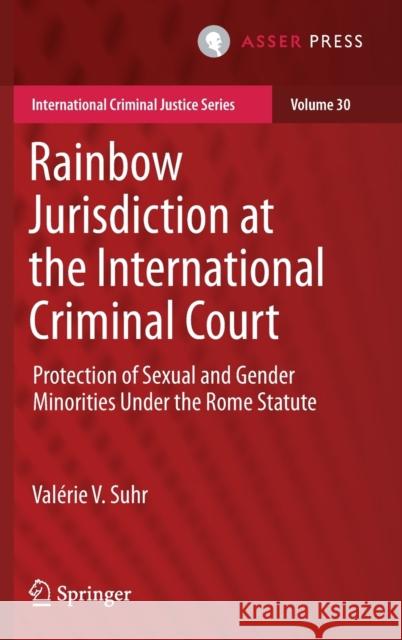Rainbow Jurisdiction at the International Criminal Court: Protection of Sexual and Gender Minorities Under the Rome Statute » książka
topmenu
Rainbow Jurisdiction at the International Criminal Court: Protection of Sexual and Gender Minorities Under the Rome Statute
ISBN-13: 9789462654822 / Angielski / Twarda / 2021 / 418 str.
Rainbow Jurisdiction at the International Criminal Court: Protection of Sexual and Gender Minorities Under the Rome Statute
ISBN-13: 9789462654822 / Angielski / Twarda / 2021 / 418 str.
cena 564,88
(netto: 537,98 VAT: 5%)
Najniższa cena z 30 dni: 539,74
(netto: 537,98 VAT: 5%)
Najniższa cena z 30 dni: 539,74
Termin realizacji zamówienia:
ok. 22 dni roboczych.
ok. 22 dni roboczych.
Darmowa dostawa!
This timely book comprehensively examines whether the worst human rights violations directed specifically at sexual and gender minorities are punishable under international criminal law, as codified in the Rome Statute of the International Criminal Court.Drawing on general rules of interpretation, the development of human rights for sexual and gender minorities, and the social construction of gender, this monograph reveals that the worst crimes committed against persons because of their sexual orientation or gender identity can amount to crimes against humanity, particularly the crime of persecution under Article 7(1)(h). It also shows how legislators can be held individually criminally responsible for passing laws that criminalize consensual same-sex sexuality.
The book not only makes a significant and original contribution to the literature but is also highly relevant for international criminal law practitioners, since, so far, no cases regarding this topic exist.
Dr. Valérie V. Suhr is currently a trainee lawyer in the district of the Koblenz Court of Appeal in Germany
The book not only makes a significant and original contribution to the literature but is also highly relevant for international criminal law practitioners, since, so far, no cases regarding this topic exist.
Dr. Valérie V. Suhr is currently a trainee lawyer in the district of the Koblenz Court of Appeal in Germany











